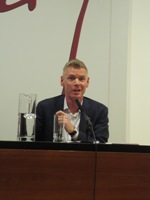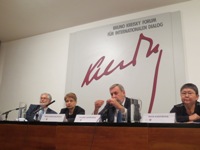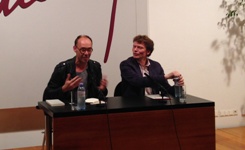AFRICA, THE EU AND AUSTRIA: Tackling the New Security Challenges of Terrorism and Regional Disintegration
Nicholas Westcott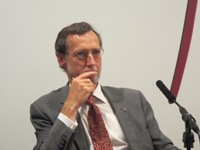
Managing Director, European External Action Service
Nick Westcott has been Managing Director, European External Action Service, since February 2011. He was British High Commissioner to Ghana and non-resident Ambassador to the Ivory Coast, Burkina Faso, Niger and Togo from January 2008 to January 2011. He was Chief Information Officer and Head of IT Strategy at the Foreign and Commonwealth Office from 2002- 2007, managing the FCO’s £100m annual ICT budget.
Prior to that, he served as Minister-Counsellor at the British Embassy, Washington (1999-2002) handling trade, transport and e-commerce issues; as Deputy High Commissioner in Dar es Salaam, Tanzania (1993-6); and at the UK Representation to the EU in Brussels (1984-9). He has also held a number of jobs at the FCO in London, including Head of the Economic Relations Dept, in which role he was responsible for managing the Birmingham G8 Summit in 1998.
He has a PhD in African studies from Cambridge University is a Fellow of the Royal Geographical Society, and was made a Companion of the Order of St Michael and St George in December 1998.
Respondent:
Christian Ultsch, Foreign Editor, Die Presse
Moderator:
Georg Lennkh, Member of the Board of the BKF

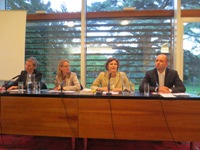 Katja Gentinetta, Politikphilosophin und -beraterin
Katja Gentinetta, Politikphilosophin und -beraterin